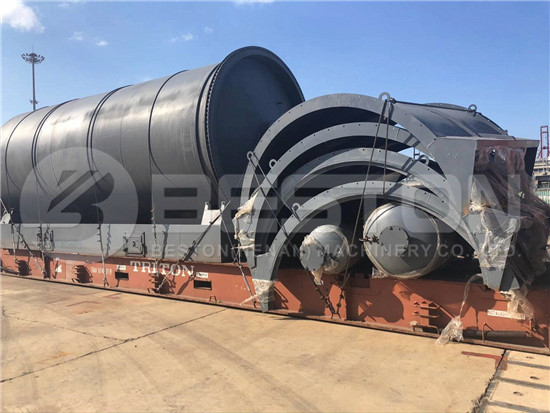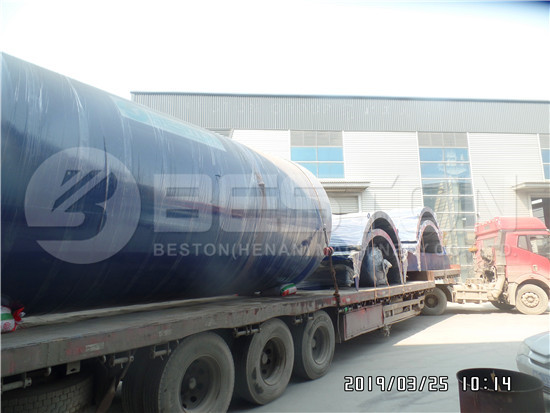A tyre recycling plant refers to a system that extracts fuel oil and other useful products from tyres through the pyrolysis process. Beston tyre recycling machinery is one advanced system that incorporates technologically advanced tools that convert tyre wastes into valuable end products. The machine is environmentally friendly and does not contaminate the environment making it a suitable choice for the waste tire recycling plant. On top of that, the device is popular in the recycling industry because of its outstanding recycling efficiency.

Benefits of Beston Tyre Recycling Plant
1. High Operation Efficiency: Beston plant produces high-quality oil owing to its excellent design. The machine has been engineered to reduce wastages as much as possible to improve the quality of the final products.
2. Explosion-Proof System: The tyre recycling system has advanced sensor units and powerful modules that minimize the chances of fire outbreaks during machine operation. The system has emergency pressure valves that control the pressure of the pyrolysis reactor maintaining it within a safe operational margin.
3. Full-Automation: Beston tyre pyrolysis machine has been fully-automated, and this eliminates the errors that result from human mistakes. The plant has auto-feeding systems, auto-discharging systems, and auto-shredding systems which help in improving the qualities of the end products.
4. Efficient Dusting Systems: The plant has a four-stage dusting system that is very effective in dusting. The stages are the water spray stage, the water washing stage, the activated carbon adsorption, and the magnetic ring adsorption stage. The exhaust gases pass through all these stages before being released into the atmosphere making them safer for the environment.

Tyre Recycling Plant Business Plan
A business plan is a document that specifies the objectives and aims of a business and ways of achieving them. The business plan for the tyre recycling machinery should consist of the following items:
1. Cost of Tyre Recycling Plant: The first item to consider in the business plan is the pyrolysis plant price. The cost is essential in assessing the viability of the recycling project. An affordable system means that a company will take less time to recover the capital spent to buy the machinery. On the other hand, an expensive recycling system might not be economically viable because it will be beyond the financial reach of the company. Selecting a plant that fits your budget is paramount. You can follow Beston’s Facebook for more information.
2. Objectives and Goal: A company should have well-written and realistic aims that will be used to assess progress and development. Objectives are vital because they help a company channel and direct its finances and activities towards a specific target.
3. Management System: Another crucial aspect to include in the business plan is the management and administrative system. The system ensures that budgets are written on time, qualified workers are added to the workforce, and the activities of the plant are run smoothly.
5. Market Analysis: Having a detailed analysis of the target market, the market patterns, the potential competitors, sales forecasts, pricing strategies, and payment options is vital for the success of the tyre recycling machinery. There are many other items to include in the business plan, but these are the main ones that should be given priority by a company that is planning to commission a tyre recycling plant.
Key Factors Affecting Price of the Tyre Recycling Machinery
1. Size of the Tyre Recycling Plant- Large plants have higher output capacities making them cost more than small recycling plants. The pyrolysis plant price is the most important part of the cost of a tyre recycling plant.
2. Types of Raw Materials- Plants that can utilize a wide range of raw materials cost more than those that can only convert a few raw materials into useful products.
3. Fuel Expenses– Recycling plants that are fuel-efficient cost more than those that are not fuel-efficient.
4. Maintenance Cost– Complex and highly-automated recycling plants require high maintenance cost that manually-operated machines.
5. Amount of Labor Force Required- Machines that require less human labor cost more than those that require more human labor.
In summary, the Beston Group supplies its clients with the appropriate business plans so that they can get the best recycling plant based on their budget, working conditions, and the available raw materials.